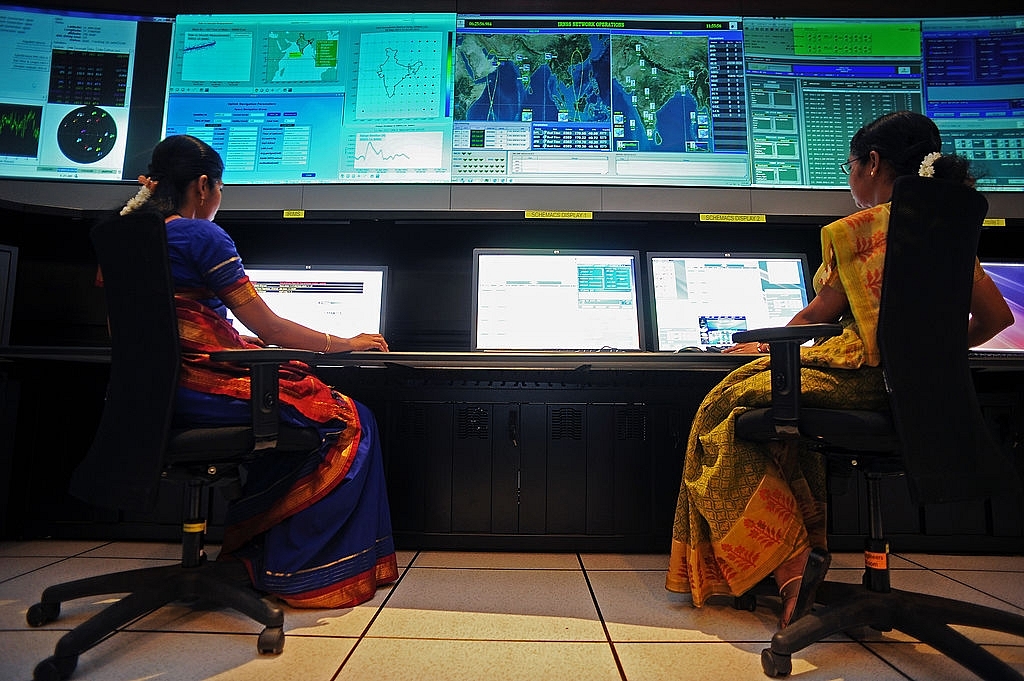Technology
Elon Musk Might Soon Have Competition From India

Scientists from the Indian Space Research Organisation (ISRO) work in the Indian Regional Navigational Satellite System (IRNSS) control room at the Indian Deep Space Network (IDSN), a network of large antennas and communication facilities that support India’s interplanetary spacecraft missions, located at Byalalu village about 50 kms from Bangalore city on May 28, 2013. The ISRO inaugurated the Satellite Navigation Centre for Indian Regional Navigational Satellite System at the IDSN facility today. AFP PHOTO/ Manjunath KIRAN (Photo credit: Manjunath Kiran/AFP/Getty Images)
Amazon’s founder, Jeff Bezos and maverick entrepreneur Elon Musk, founder of PayPal, Tesla, SpaceX are engaged in a space race. Both are trying to outmaneuver each other. But now they might have competition from India!
The first Indian ‘private’ rocket built by a consortium of private firms, with ISRO’s help, may be launched as early as 2020.
Currently, ISRO deploys the Polar Satellite Launch Vehicles (PSLV) for launching satellites. These rockets are built by integrating components and systems made by Hindustan Aeronautics (HAL), Larsen & Toubro, Godrej Aerospace, Avasarala Technologies and Walchandnagar Industries.
The Business Standard (BS) reports that ISRO has proposed setting up a consortium of companies to begin private manufacture and launching of space faring rockets.
But why is ISRO helping private firms set up a consortium?
ISRO seems to be willing to transfer technology to Indian private firms so that it can focus solely on missions and innovation in space tech. The space organisation faces budget constraints as well and has to operate with limited capabilities and manpower. Now it can focus on its core areas of operation, i.e. space exploration.
The other two issues are that of meeting the increasing demand and intense competition in the space race. The BS report also tells us that since its debut, PSLVs have done 35 flights, hurling 86 satellites, including 45 foreign, small and medium satellites into space. Currently, ISRO can launch only six PSLVs a year. With private firms taking care of rocket manufacturing, it can triple its launches to 18 every year.
Demand for more satellites is increasing by the day. Foreign countries are increasingly choosing ISRO to hurl their satellites in space because its costs are less compared to others. But the demand is increasing and to meet that amount, it needs to produce more. Hence, the ‘outsourcing’.
Now, consider the competition.
OneWeb, a US firm, wants to send 648 satellites on low earth orbits to bring access to remote areas. Private firms like Elon Musk’s SpaceX and Jeff Bezos’ Blue Origin are engaged in an intense undeclared war of sorts to successfully launch the Reusable Launch Vehicle (RLV).
RLVs will bring down infrastructure costs drastically as the same launch vehicle can be used repeatedly. In April, Musk finally succeeded in landing Falcon 9 rocket on a floating drone ship for the first time, after four failed attempts.
ISRO’s RLV
ISRO is not very far behind Musk when it comes to RLVs. It successfully launched the indigenously-built Reusable Launch Vehicle Technology Demonstrator (RLV-TD) last month. It was a first in many of the tests that will have to be conducted before the real reusable vehicle can be developed. Though the agency will take some time before it catches up with Musk, it understands its challenges all too well. Given the agency’s bureaucratic redtape, that’s a positive sign.
Cost Advantage?
For ISRO, the costs are about $5,000 (about Rs3.37 lakh) per kg with the current family of rockets. Space X manages launches to low earth orbits (LEO) at half the above costs ($2,719/kg).
Reuseable launch vehicles are expected to bring down these costs dramatically.
While ISRO aims to bring down costs to $500 per kg of payload launched to low earth orbit, Elon Musk is expecting to do the same at nearly double the cost - around $1,100 per kg.
ISRO seems to have set itself a very ambitious target but if it can pull it off and simultaneously spin-off a private consortium to scale up launch numbers then it can be advantage India.
Support Swarajya's 50 Ground Reports Project & Sponsor A Story
Every general election Swarajya does a 50 ground reports project.
Aimed only at serious readers and those who appreciate the nuances of political undercurrents, the project provides a sense of India's electoral landscape. As you know, these reports are produced after considerable investment of travel, time and effort on the ground.
This time too we've kicked off the project in style and have covered over 30 constituencies already. If you're someone who appreciates such work and have enjoyed our coverage please consider sponsoring a ground report for just Rs 2999 to Rs 19,999 - it goes a long way in helping us produce more quality reportage.
You can also back this project by becoming a subscriber for as little as Rs 999 - so do click on this links and choose a plan that suits you and back us.
Click below to contribute.
Latest